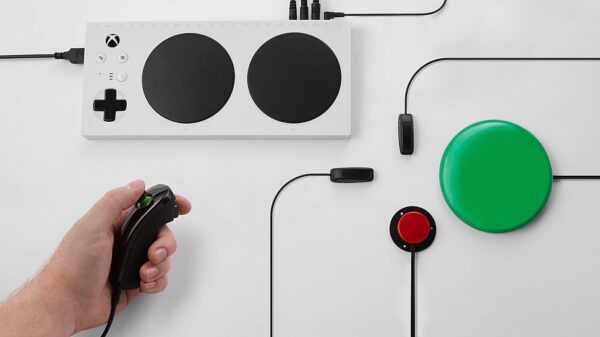A loot box is a virtual treasure chest that players in a video game can optionally open to obtain random virtual items, such as costumes (skins), for example. In this blog, we dive deeper into the specific situation of paid loot boxes in Belgium.
1. How do players obtain loot boxes?
There are three ways to acquire loot boxes:
- In some games, players can optionally purchase loot boxes with real money through microtransactions. The value of the contents of a loot box varies from game to game and from loot box to loot box.
- Other games allow players to purchase loot boxes with virtual game coins, which they can earn for free by playing or buy with real money.
- Loot boxes can also be given as free rewards after completing missions, achieving milestones, or winning matches.
2. How can you tell if a game has paid loot boxes?
Most games have a PEGI label on the packaging or in the digital game/app store. There is an icon referring to ‘in-game purchases’ with the mention ‘includes random items’ underneath it. Additionally, there is also an icon depicting 2 dices. This is often used in combination with the 18+ age rating to indicate that a game contains simulated elements of gambling, such as simulations of casinos or slot machines. A player cannot win or lose real money with these simulations or with paid loot boxes in a legal manner.
3. Why are some paid loot boxes inaccessible in Belgium?
In 2018, the Belgian Gambling Commission ruled that paid loot boxes fall under Belgian gambling law. According to this broad Belgian gambling legislation, gambling occurs when there is a monetary stake in a game where the player can win or lose something, and the result is (partly) determined by chance. Belgium is the only country in the world that considers paid loot boxes as a form of gambling, despite the fact that a player cannot legally convert virtual items from paid loot boxes into real world money and thus there is no monetary gain. Video game companies wishing to continue offering paid loot boxes in Belgium can obtain a paid gambling license from the Gambling Commission, with a portion of the revenue from those loot boxes flowing to the Belgian treasury. However, the major video game companies chose to disable paid loot boxes in our country. This means that players in Belgium can only obtain loot boxes through free rewards or gameplay achievements – and cannot purchase them with real money or purchased virtual game coins, unless players bypass this illegally, for example, using a private internet connection (VPN). Some game companies still offer paid versions without a gambling license. These companies risk criminal sanctions and fines.
4.What is the latest stance of the Belgian Gambling Commission on loot boxes?
At the end of 2024, the Gambling Commission published a report from a workshop that brought together various stakeholders on the subject of paid random items, including loot boxes. Gambling operators from France and the UK participated, as well as researchers from several Belgian universities, consumer organizations from the Netherlands and Denmark, consumer authorities from Belgium and the Netherlands, PEGI, and trade federations like Video Games Europe and ourselves from Video Games Federation Belgium.
In conclusion, the working groups noted that while a ban on paid random items is not desirable, some measures should be put in place to ensure that players have a safe experience. If regulation is to be adopted, it should ideally be done in a layered approach. National gambling legislation can play a dividing role and specify which transactions fall under its scope and which ones do not. That said, its specific subject matter and lack of harmonization prevent it from providing a comprehensive framework for paid random items. European Union law, particularly consumer protection law, appears to be the most appropriate instrument to implement the substance of these rules. Lastly, self-regulation tools can tailor this framework to the needs of specific products and industries.
The sector is working with the federal government and the Gambling Commission to determine the next steps in creating a clear, legally valid, and self-regulating framework for video game companies.
5. What is skin gambling?
Skin gambling is an illegal practice where virtual items, such as costumes (skins), are used for gambling or sold for real money on unregulated websites. Skin gambling websites are not only prohibited by law, but video game companies also forbid any form of converting virtual items into real world money. Game companies are asking the government and the Belgian Gambling Commission to help take down these websites.
6. What tips are there for parents of children that play video games?
It is helpful for (grand)parents, caretakers, or teachers to talk with children about their video game experience, just as they would ask about school performance or hobbies. (Grand)parents should also make clear agreements with their (grand)children about in-game purchases while playing video games. Our research from March 2024 showed that 75% of Belgian parents with children aged 4 to 17 who play video games have a good understanding of their children’s gameplay experiences. The same study shows that only 30% of Belgian parents allow their children to make in-game purchases. A Norwegian study from October 2024 found that the use of loot boxes among young people significantly decreased between 2019 and 2022. Actively listening to one another and making concrete agreements fosters open and healthy communication about gameplay experiences.
7. What if someone wants to limit or avoid in-game purchases?
In many games, purchases of in-game content or microtransactions – including paid loot boxes – can be disabled through parental controls or console settings. Additionally, payment options for in-game purchases can be limited so that children can only spend a fixed amount each month. It is therefore important that children play through their own account, placed under the parental account.





